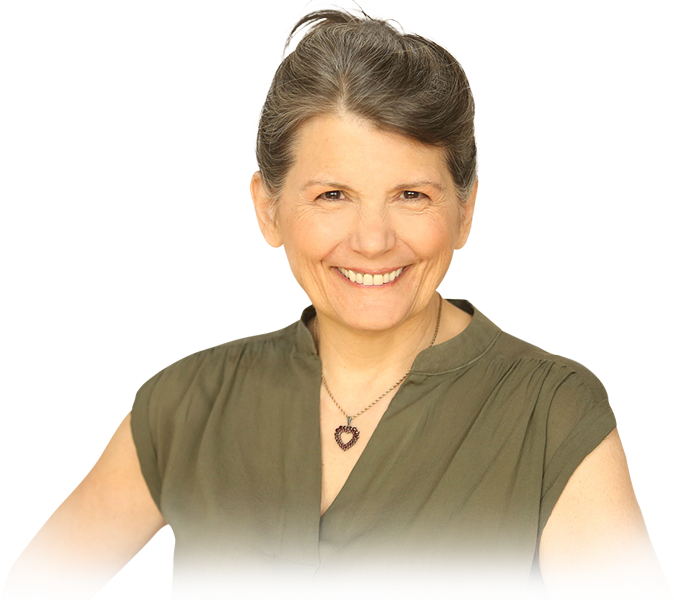So many Feldenkrais® practitioners I’ve spoken with think they don’t have enough skill to give a reasonable lesson! It’s hard to believe, but some people actually send potentional clients to other practitioners with less experience, sometimes even to new graduates or people still in training — because they’ve come to believe that they just don’t have what it takes to practice.
This is heartbreaking to me, for many reasons. A major one is that I know very well that it is absolutely NOT possible to attend a 4-year training program without learning enough to start — especially if you were awake most of the time! Think about it — if I gave you half an hour to sit down and make a 2-column list — in the first, you write things you learned in your training that the average person on the street doesn’t know; and in the second, you write ways to help a person feel each of those things in his or her own body — you know you wouldn’t have time to write it all down if you wrote at lightning speed!
So the problem is NOT that we don’t know enough — it’s that we don’t realize how much we know, AND we don’t know how to evaluate it. These two problems can wreak major havoc in the life of a struggling practitioner, because together, they can make it almost impossible to access the wealth of our knowledge just when we need it! Luckily it’s not a hopeless situation — we just need to learn how to own our expertise, so we can get on with using it.
Where’s your reference point?
You see, what happens is that without thinking about it, the world of training tends to become our reference point. As a trainee, it’s easy to get the idea that you’ll need years to become as good as the people who taught you. In fact, it’s probably true — but what does that have to do with building your practice? What does it have to do with working successfully with the people who come to you? If you’re constantly looking in the direction of your training, you’ll never see how you look to the people who are waiting just for you!
Let’s think about the 6.8 BILLION people on the planet for a minute. How many of them do you suppose have been to the people who taught you, or to any other, experienced, practitioner? [If you’re unsure about how to answer this, first take all the people who can’t pronounce the name of what we do, and put them in the list that says “Nope. Haven’t worked with someone who knows more than I do”!!] In all likelihood, very few of your prospective clients have had experience with highly skilled practitioners!
So let’s look in the other direction for a minute. When you compare yourself to your prospective clients, how do you rank? Do you know more than they do? Can you help them to feel better? Can you think about whatever problem they come to you with, in a way they’ll find new, refreshing and hopeful — based on the people in the rest of the world they’ve been talking to? Do you have enough confidence to help them do ONE thing more easily — turn their heads, increase their ability to turn around themselves, feel a how to work less in their shoulders, recognize how to make their balance more stable, feel their feet on the ground more safely? If so, you have enough to begin — but I’ll bet you can do ALL of them!
What IS your expertise, anyhow? And how can you measure it and talk about it comfortably?
Do you wish it were easy to figure this out? Well, you’re in luck because I’ve developed a worksheet just for this purpose! It’s going to help you find a new way to appreciate your “expert knowledge,” and you can download it by clicking here: Own your expertise
Once you’ve developed an understanding of how much right you have to claim that you know something, you can begin to practice telling people about it, as you walk around the house. I encourage you to do this out loud, when you’re alone, because you need to hear the words coming out of your own mouth… otherwise, your gremlins will hold sway and you’ll choke on the words when you try to say them to someone else! I’m speaking from my own experience…I heard things about my own ability from other people, but they didn’t get in far enough to make a difference until I began to acknowledge them in my own voice… so don’t kid yourself into thinking you don’t NEED to practice out loud!! If the words won’t come out of your mouth when you’re alone how will they come out when you need them??
How can you learn to do this with ease, grace and camaraderie?
No matter where in the world you live, you may be interested in Distance Mentoring… an online community of practitioners with various levels of experience who are dedicated to improving their skills, building their practices, and supporting each other in the process. We work over the phone and the internet, we don’t flame, blame or shame, and we love to celebrate each other’s progress! To find out more, email me at FeldyMentor AT gmail.com!

